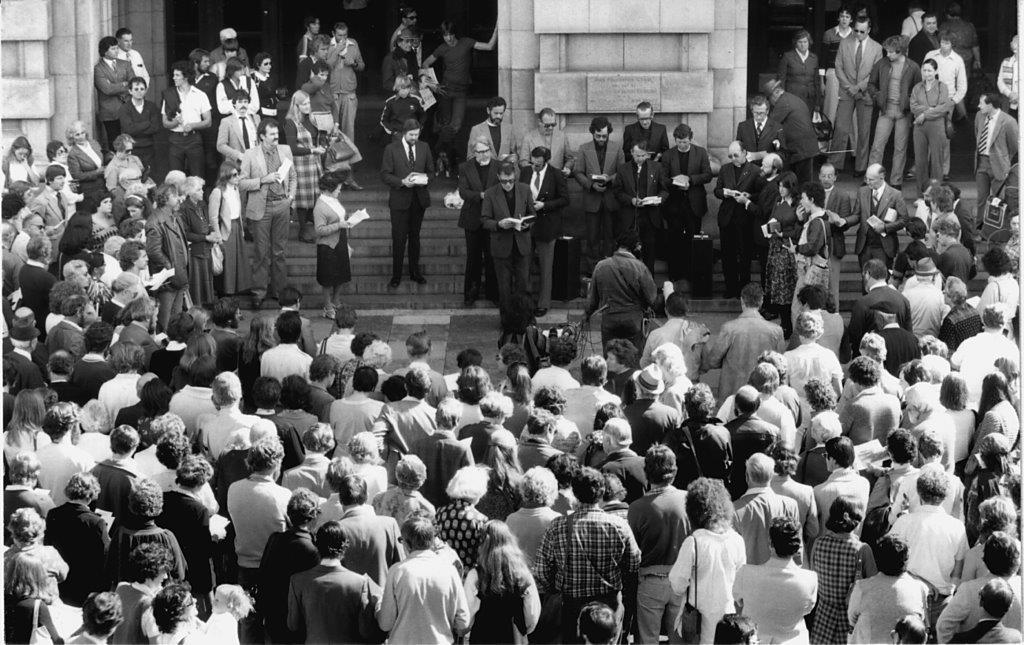This year the Uniting Church in Australia celebrates its 40th anniversary. Throughout 2017, Revive will feature significant events in the life of the church during that time.
The Uniting Church is often talked about for its commitment to social justice. Over its 40 years, the Uniting Church WA has spoken and acted on a range of issues. In recent years, members of the Uniting Church have marched for refugee rights, action on climate change, marriage equality, pride and more. Church members have also spoken out on Indigenous rights and even the right to protest itself.
One of the earlier involvements of the Uniting Church WA in political actions was to protect land from mining at Noonkanbah Station, in the Kimberley, WA. In 1976, the land was pegged for oil exploration, causing tension with the State Government and the traditional owners of the land, the Yungngora people, over the desecration of sacred sites.
Members of the Noonkanbah community had asked the church to support them in their cause, resulting in the Uniting Church working closely with the Yungngora people during this time. A number of rallies were held in WA in support of the traditional owners of the land.
In 1979, the Synod of WA agreed to “make representation to the WA Government with a view to its reconsideration of the decision to allow drilling on the Pea Hill sacred sites.”
In 1980, then West Australian Premier, Charles Court, ordered the mining exploration to go ahead. On 7 August 1980, a convoy of drilling rigs and trucks with police escorts left Eneabba, north of Perth, to be met by protestors along the way and a blockade near the site.
Uniting Church ministers arrested at the blockade included Rev Bernie Clarke, Rev Robert Stringer, Rev Don McCaskill and Rev Charles Harris. Rev Martin Chittleborough, an Anglican Priest, was also arrested.
In a statement from the clergy present at the protest, they wrote: “We could see that the Yungngora community was caught by circumstances beyond their control in issues which were far wider than their small community. In the struggle to make their voice heard, we believe the Government has failed to hear them, and has attributed genuinely held fears about their sacred sites and community life to stirrers.”
They continued: “The Aboriginal people sat in silence until the arrests started. All linked arms as the vehicles were towed away and broke into a chant. There was no violence.
“The police were fair and firm. During the four hours in the paddy wagon we were given two drinks of water. In prison we were given a meat pie.
“The men from the churches did not arrive at Noonkanbah committed to participation in any protest or action. We wanted to show the community that there were many people in Australia who cared about what happened to them.”
No oil was found, and in April 2007 Noonkanbah land was recognised by native title.
Heather Dowling
Top image: A section of the crowd at a rally in support of the Noonkanbah community, held in Perth.
